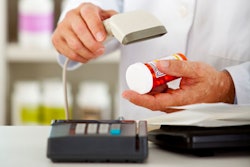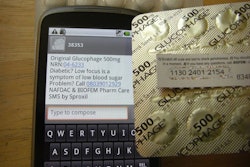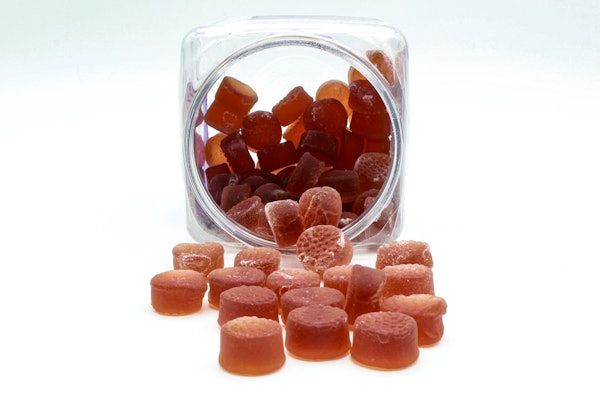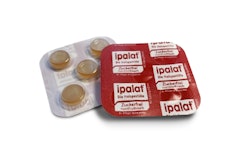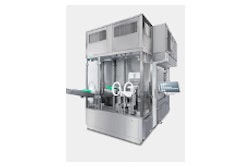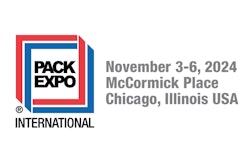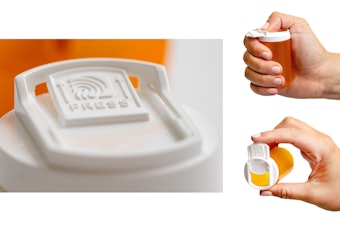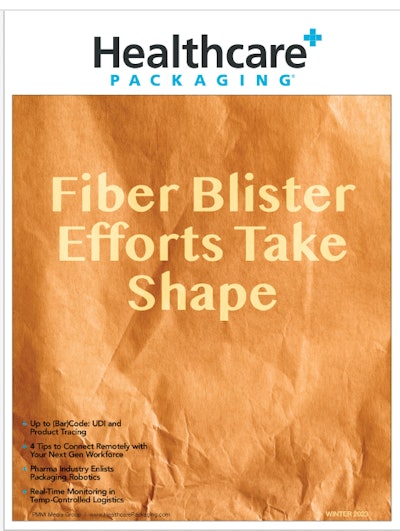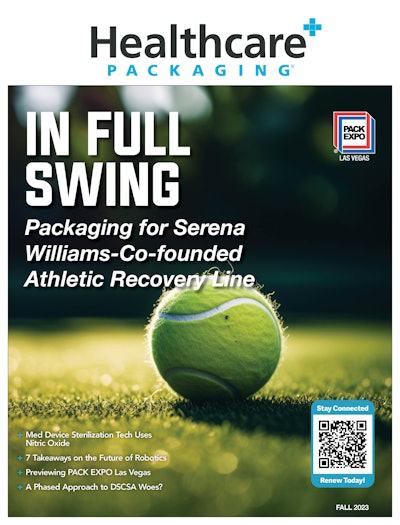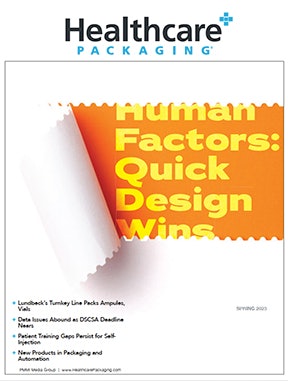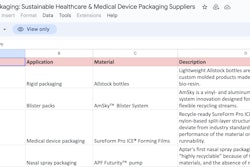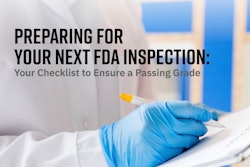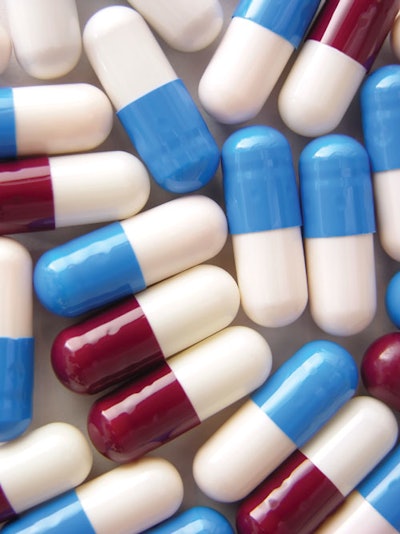
An Aug. 16 CNNMoney.com article, “Drug recalls surge,” for example, reported, “Recalls of prescription and over-the-counter drugs are surging, raising questions about the quality of drug manufacturing in the United States. …The Food and Drug Administration reported more than 1,742 recalls last year, skyrocketing from 426 in 2008, according to The Gold Sheet, a trade publication on drug quality that analyzes FDA data.”
Given the existing quality standards and Good Manufacturing Practices for pharmaceutical processing and packaging, it was especially disturbing to read in the CNNMoney.com story that “the quality of raw materials, faulty labeling and packaging and contamination” are “some of the biggest culprits.”
One widely reported example: McNeil Consumer Healthcare's product recall in which wooden pallet issues were identified as a source of the problem. But drug manufacturers shouldn't get all the blame. As CNNMoney.com reported, “Repackagers that relabel drugs into smaller units for resale or distribution to healthcare facilities have also had serious lapses.”
Are there trends regarding drug recalls? Not according to Elaine Gansz Bobo, an FDA spokeswoman quoted in the CNNMoney.com story as saying, “Since every recall situation is unique, it would be difficult to assess whether there are any trends or increases in recalls this year.” A similar statement came from Eric F. Greenberg, the Chicago-based attorney-at-law who serves as legal columnist for Healthcare Packaging. He said, “It will take time and further analysis to determine what are the causes of the upswing. Drug packagers and others should take the trend as a reminder of the integral nature of drug manufacturing, encompassing drug manufacturing, packaging, and labeling functions.”
Pharmaceutical counterfeiting and diversion continue to spread around the globe. Healthcare Packaging's August issue reported on five different packaging-centric anti-counterfeiting, brand authentication, and track-and-trace technologies. In this issue, we report on the use of nanotechnology-based encryption on pills produced by Pfizer's Capsugel division as an anti-counterfeiting strategy employed prior to packaging. The technology can go hand-in-hand with packaging approaches, says Guido Driesen, Capsugel's president and general manager.
In his book “Pharmaplasia,” author Michael G. Wokasch writes that uncontrolled pharmaceutical growth, declining drug development not keeping pace with the need for innovative treatment, and declining revenue growth has occurred at the same time as “diminished public trust due to a host of missteps by the industry [that] has led to intensified legislative and regulatory oversight and increased punitive litigation. …Companies that succeed at delivering truly innovative treatments and reestablishing market credibility will have an opportunity to participate in a new market that promises to be as financially rewarding as any in the history of the industry.” Wokasch is scheduled to make a presentation at the May 26, 2011 Healthcare Packaging Conference & Workshops event in Princeton, NJ. Mark the date and check www.healthcarepackaging.com for future updates
Given the existing quality standards and Good Manufacturing Practices for pharmaceutical processing and packaging, it was especially disturbing to read in the CNNMoney.com story that “the quality of raw materials, faulty labeling and packaging and contamination” are “some of the biggest culprits.”
One widely reported example: McNeil Consumer Healthcare's product recall in which wooden pallet issues were identified as a source of the problem. But drug manufacturers shouldn't get all the blame. As CNNMoney.com reported, “Repackagers that relabel drugs into smaller units for resale or distribution to healthcare facilities have also had serious lapses.”
Are there trends regarding drug recalls? Not according to Elaine Gansz Bobo, an FDA spokeswoman quoted in the CNNMoney.com story as saying, “Since every recall situation is unique, it would be difficult to assess whether there are any trends or increases in recalls this year.” A similar statement came from Eric F. Greenberg, the Chicago-based attorney-at-law who serves as legal columnist for Healthcare Packaging. He said, “It will take time and further analysis to determine what are the causes of the upswing. Drug packagers and others should take the trend as a reminder of the integral nature of drug manufacturing, encompassing drug manufacturing, packaging, and labeling functions.”
Pharmaceutical counterfeiting and diversion continue to spread around the globe. Healthcare Packaging's August issue reported on five different packaging-centric anti-counterfeiting, brand authentication, and track-and-trace technologies. In this issue, we report on the use of nanotechnology-based encryption on pills produced by Pfizer's Capsugel division as an anti-counterfeiting strategy employed prior to packaging. The technology can go hand-in-hand with packaging approaches, says Guido Driesen, Capsugel's president and general manager.
In his book “Pharmaplasia,” author Michael G. Wokasch writes that uncontrolled pharmaceutical growth, declining drug development not keeping pace with the need for innovative treatment, and declining revenue growth has occurred at the same time as “diminished public trust due to a host of missteps by the industry [that] has led to intensified legislative and regulatory oversight and increased punitive litigation. …Companies that succeed at delivering truly innovative treatments and reestablishing market credibility will have an opportunity to participate in a new market that promises to be as financially rewarding as any in the history of the industry.” Wokasch is scheduled to make a presentation at the May 26, 2011 Healthcare Packaging Conference & Workshops event in Princeton, NJ. Mark the date and check www.healthcarepackaging.com for future updates

